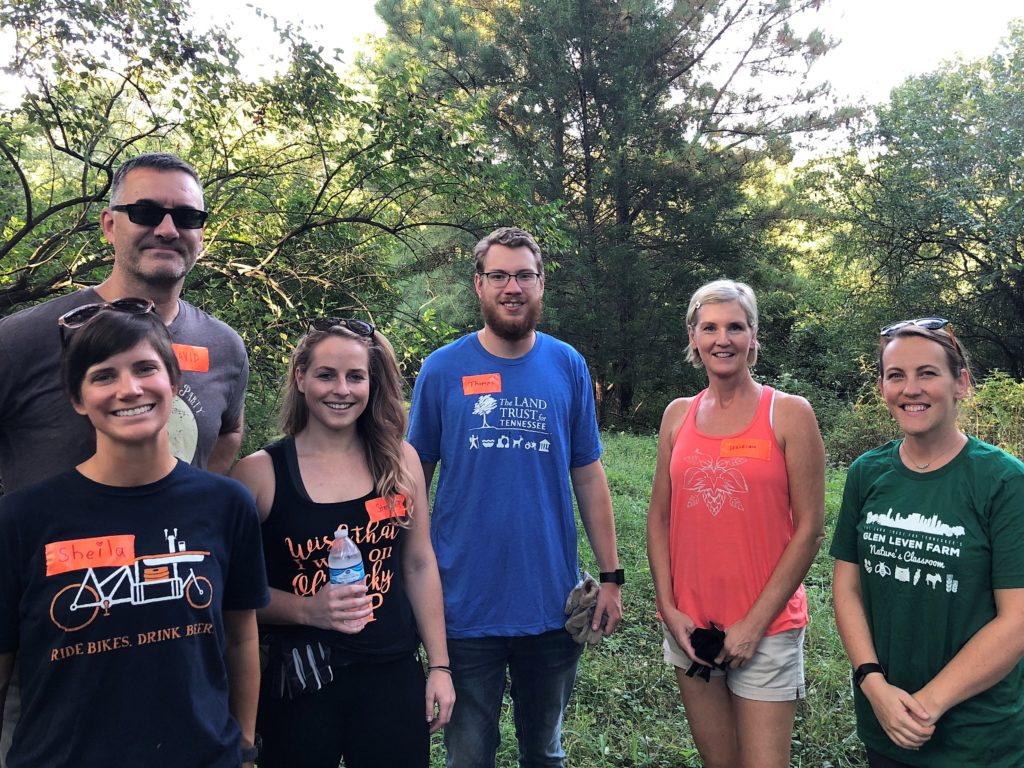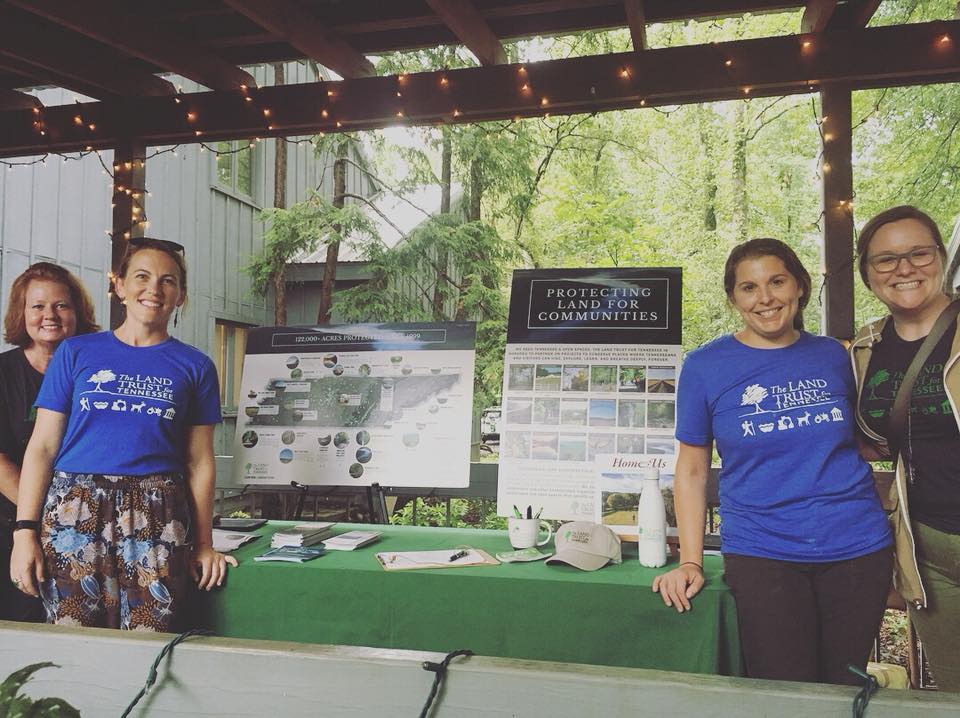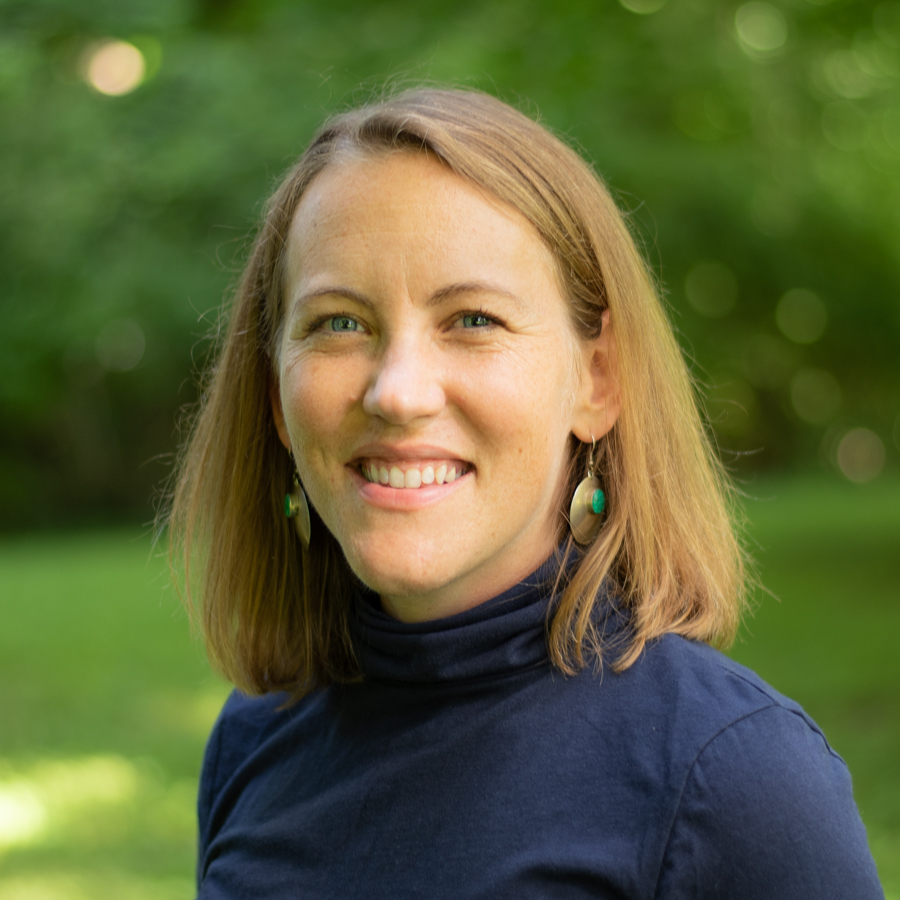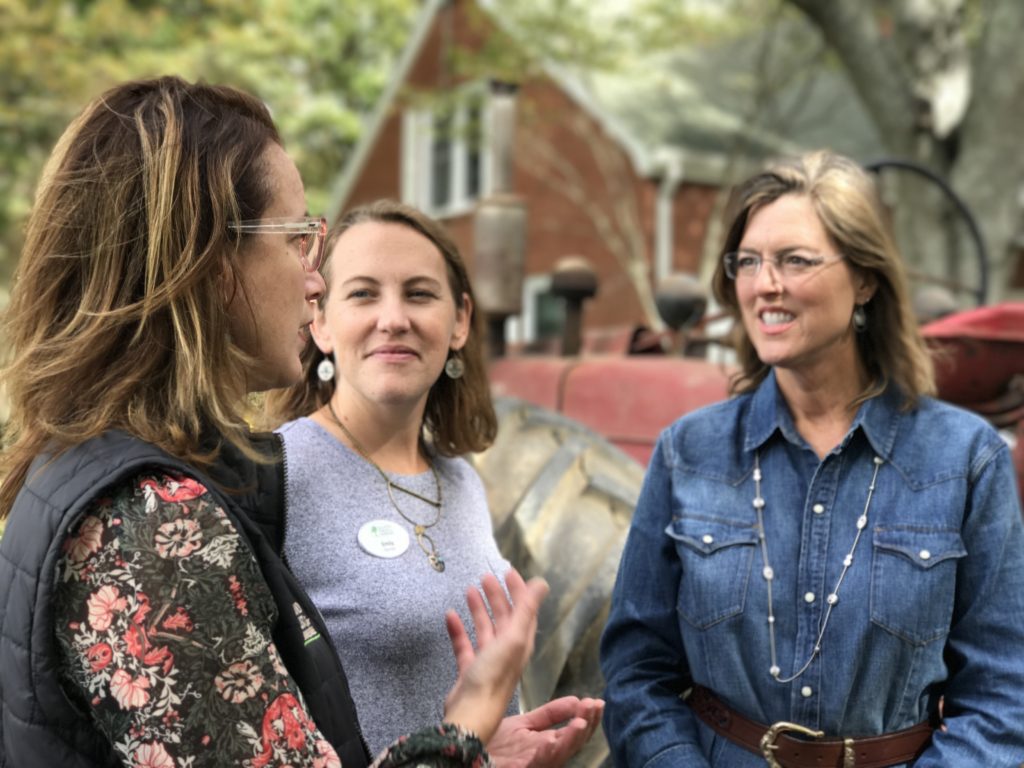Meet the Faces: Emily Quinlan
Conservation and community go hand in hand – that is, you cannot have successful conservation without the people who make it possible. This principle is at the forefront of Emily Quinlan’s work each and every day here at The Land Trust.
Emily is The Land Trust’s Conservation Project Manager for Middle Tennessee, focusing on urban and suburban conservation projects. Yet her work extends far beyond taking a project through the process.
Meet Emily
Emily Quinlan hails from the Eastern Seaboard, having now lived in Tennessee for five years. She graduated from the University of Georgia and went on to earn a law degree from the Catholic University of America, having focused on social justice and the environment.
Drawn to Tennessee for its open spaces, Emily credits her childhood for her personal connection with nature: “I camped a lot as a kid and grew up in a town the Appalachian Trail goes through. My dad came from a family of dairy farmers, and my mom went to college to be a park ranger. The natural world has always been a big part of my life.”
Prior to joining The Land Trust, Emily was an attorney at the Tennessee Justice Center and previously worked at the Southern Environmental Law Center.
Interview
Q: What made you take the leap from law into conservation work?
A: The outdoors are very important to me in my daily life, so the transition from law to conservation made sense. Plus, the work I did in the legal field focused on building a better community, which is what we are doing with land conservation.
Q: What is the biggest misperception about The Land Trust you encounter when working with communities?
A: The biggest misperception is that we own all of the land we protect. To a lot of folks, the word ‘trust’ means “ownership”. However, landowners who work with us maintain full ownership of their land. Our role is to partner with the landowner and monitor the restrictions of the conservation agreement, ensuring it is never violated.




Q: What sort of work does your role entail?
A: I carry a conservation project from start to finish – starting with responding to landowners who contact The Land Trust because they are interested in conservation, finishing with closing the conservation easement (a type of real estate transaction), and all the steps in between. The best part is getting to know the landowners and their beautiful properties.
In addition to working one-on-one with landowners, I also evaluate parts of Tennessee to see where there are opportunities to protect land with high conservation value or land that directly benefits the community. This has led to me facilitating the strategic conservation plan.
Q. Can you share more about the strategic conservation plan?
A: During The Land Trust’s first 19 years, a lot of our work was reactive, jumping at opportunities when presented. As our 20th year approaches, we want to take a more proactive approach to ensure we are best using philanthropic dollars and resources to conserve properties with the most conservation value and public benefit. In order to do that, we are using GIS to map the entire state for conservation ‘hot spots’ to help figure out where those areas are.
To support this data collection, we are also gathering public input from across the state, asking Tennesseans about which places matter most to them. This winter we will analyze all of the data and identify strategies for outreach and conservation over the next 10 years – so the reality of Tennessee as home to productive farms and forests, thriving wildlife, authentic communities, healthy watersheds, and vibrant green spaces lasts forever.
Q: What about the strategic conservation plan excites you the most?
A: The plan will be a comprehensive guide for our work, which will truly increase our impact across the state – not just in terms of acres of land conserved but also in terms of being relevant in communities. The planning process alone has already allowed us to talk with communities we didn’t previously engage, and this is exciting and necessary for the future of land conservation in Tennessee.
If you would like to learn more about upcoming conservation projects or follow the development of our strategic conservation plan, then sign up for our e-newsletter here or follow us on social media @LandTrustTN.
Your support fuels our work from start to finish, from the first conversation with a landowner to monitoring the land every year to ensure it remains protected forever. Please consider a gift to support conservation in both our communities and wild, open spaces across Tennessee.